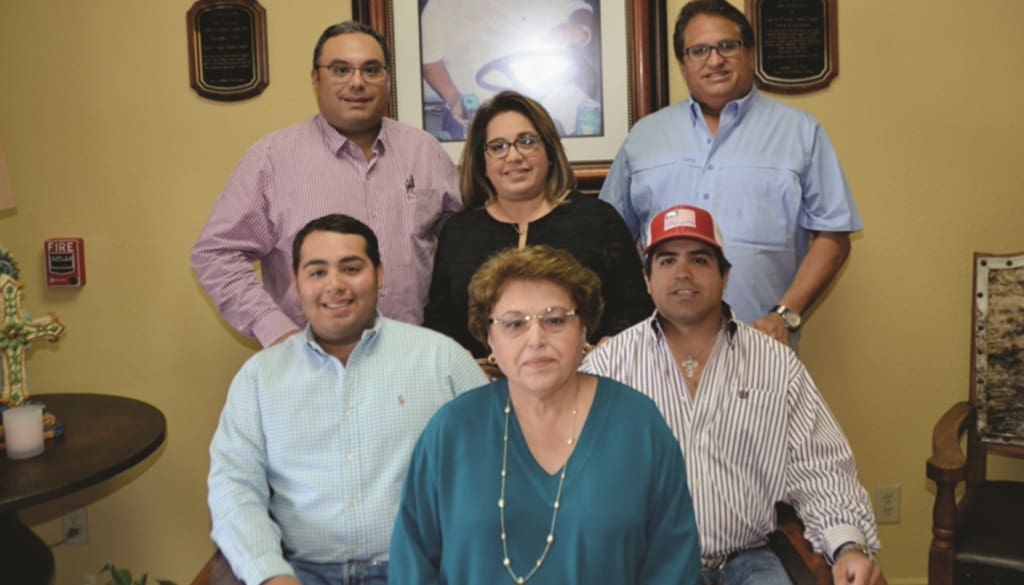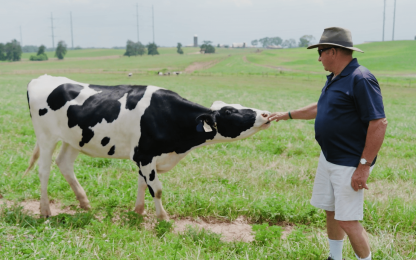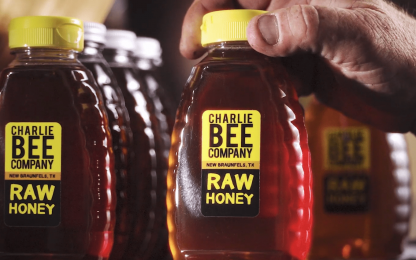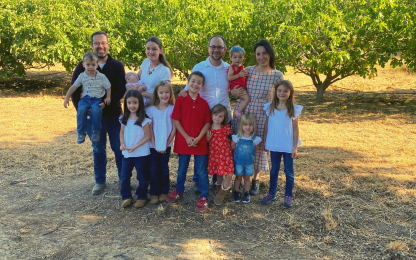The Flores family’s Mexican-style sausage has become so popular, it has grown from a local convenience store sideline product to a widely distributed pork product in markets nationwide.
While the saying goes, “making laws is often compared to making sausage — neither should ever be seen,” the saying goes the Flores family is very proud of how their chorizo is made.
“When my parents were selling our chorizo by the pound just to local customers, they’d slaughter only one pig a week that made maybe 30 pounds of chorizo,” said Luis Flores III, son of the founders of Chorizo de San Manuel – Guerra’s Brand Inc. “Now we produce chorizo five days a week.”
Phenomenal growth
The growth of the family-owned business can be traced to the philosophy of Luis’ father, Luis Flores Jr., who with his wife, Vicky, slowly and methodically expanded operations as demand for their comfort food grew in South Texas.
Chorizo de San Manuel products are now sold by H-E-B, Walmart and other grocers throughout Texas and several surrounding states and as far north as Colorado. Their facility in San Manuel, Texas, located roughly between the King Ranch and the Lower Rio Grande Valley, is a spotless, state-of-the-art plant with USDA inspectors constantly on-site.
Mexican-style chorizo is a variation of Spanish “chorizo fresco” developed centuries ago. The fresh sausage is sold raw to consumers who fry the spicy pork to a texture much like ground beef, then mix it mostly with eggs and wrap it in corn or flour tortillas. It is also folded into cheese to create a Mexican-style fondue.
Luis Jr., the patriarch of the family business, passed away in 2005 at the age of 60, just months before the operation moved into a new 20,000-square-foot processing plant, the company’s second major expansion.
History dates to World War II
The success story of Chorizo de San Manuel began during World War II when Adolfo “Shorty” Guerra and his brothers opened a convenience store on U.S. Hwy. 281, one of only two main arteries into and out of the Rio Grande Valley. Guerra developed a recipe for chorizo, and the store started selling the sausage to local ranchers and passersby, either in links or by the pound.
San Manuel native Luis Flores Jr. worked at the store nights and weekends after his daytime job as janitor at what was then one of McAllen’s most upscale stores, JCPenney on Main Street. He stocked shelves with Guerra, waited on customers, pumped gas, kept the place clean and helped make the chorizo, which was becoming more and more popular with shoppers.
Eventually, Luis was promoted to auto service salesman at JCPenney. But in 1975, when Adolfo Guerra’s brother, Leonardo, decided to retire and sell, the convenience store was offered to Luis and Vicky, who was employed at an insurance agency in McAllen.
“We hesitated buying because at the time, the sale price seemed like a whole lot of money.” said Vicky. “But we bought it and worked long hours to make ends meet. The chorizo recipe came with the store. My husband was very grateful to Mr. Guerra and always insisted on keeping the name. That’s why Guerra Brand is still part of our corporate name.”
The convenience store became a Flores family affair.
“We all worked there,” said Patricia, Luis and Vicky’s daughter. “The school bus would drop off all us siblings in front of the store, and we’d go straight from the bus into the store to work until it closed. Mom would show up after her job in town to keep the books.”
Their chorizo takes off
As the chorizo’s popularity grew, the family decided to take their product into town, to restaurants and other grocery stores.
“We bought a used refrigerated Falfurrias Butter truck to deliver our chorizo,” Vicky said. “We should have kept that old truck, but at the time it didn’t seem important.”
By 1985, their chorizo had become so popular, promoted only by word of mouth, that the family built a processing plant near the convenience store and concentrated their efforts on the sausage. The old store had become dilapidated and was torn down. An old sign post is all that remains today.
But the processing plant opened new markets for Chorizo de San Manuel.
“Until then we didn’t have cold storage,” Luis III said. “We didn’t have the capacity to ship our product to H-E-B or San Antonio or anywhere outside the local area because we couldn’t warehouse our products and we were not federally inspected.
“The new plant opened a lot of doors for us, but we still sell and deliver to lots of mom and pop stores and local restaurants,” he said.
Partnering With Farm Credit
Eventually, Chorizo de San Manuel outgrew the 4,500-square-foot plant, which is now used only for storage. Today, production takes place in a new, 20,000-square-foot facility that was financed in part by Texas Farm Credit.
“We’ve been doing business with Texas Farm Credit for many, many years,” Luis III said. “They helped us construct our new facilities and they’ve helped us finance equipment. It was also economically better for us to deliver in our own tractor-trailers versus contracting out our loads. Farm Credit helped us overcome this obstacle too.”
Vicky, who still works at the plant full time, said it was important to keep the new facility in San Manuel.
“When we were looking for land for the new plant, the city of Edinburg offered us tax incentives if we built there. But my husband insisted that we stay in San Manuel. He taught us all that it was important to remember where you came from and to give back to the community.”



